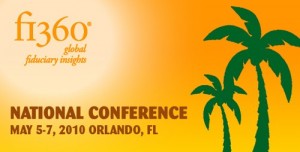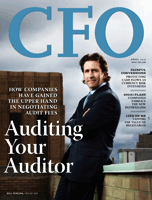Fiduciary Advice & Education Blog
BeManaged Co-Founder Presenting at ’10 fi360 National Conference
As in ’09, I will be presenting with a distinguished panel of speakers on the timely topic of 401(k) advice at the ’10 fi360 National Conference. The session, titled “401(k) Participant Advice: How to Protect Plan Sponsors and Yourself.”
Read More401(k) Paternalism – Employers Take More Active Role in Employees’ 401(k) Decisions
This month’s CFO magazine featured an interesting article regarding the change taking place in how employers’ are taking a more paternalistic approach to their employees’ decisions with their 401(k) accounts. Some of the issues that have made paternalism more necessary (not that it’s new news) are as follows:
Read More401(k) Managed Accounts – Simply a Method of Delivering 401(k) Advice
401(k) managed accounts and 401(k) advice are often considered two entirely different things in the retirement plan industry. Apples and oranges? I find this odd, to put it lightly. The ’01 SunAmerica Opinion opened the door for participants to receive advice or account management on a fee for service basis. Specifically, the following is the text from the SunAmerica Opinion, which simply states both investment advice and “discretionary asset allocation” (aka account management/managed accounts) are available:
Read MoreWhat Are Your Questions Regarding the New 401(k) Advice Proposal?
Since the DoL’s new 401(k) advice regulations were submitted on February 26th, what are your biggest questions? The most commonly discussed questions have included the following:
Read MoreVideo: Jason Roberts on 401(k) Fee Disclosure 408(b)2 Regulations
Our friend Jason Roberts of Reish and Reicher was recently interviewed on Dow Jones NewsWires regarding the proposed 408(b)2 regulations (fee disclosures/conflicts of interest), and what they mean for both employers and 401(k) advisors.
Read MoreA Model for 401(k) Advice, Pt. 2 – Must be Ongoing
A fiduciary relationship is one which is ongoing, in which the fiduciary is responsible for conducting ongoing due diligence on the various provisions for which they are responsible. A company fiduciary is charged with the responsibility of ongoing due diligence of the various fees, investment options, and vendor capabilities of the plan for the benefit of the participants. An ERISA fiduciary, regardless of the “flavor,” is hired to provide ongoing advice to the employer specific to investment due diligence and advice, vendor benchmarking, etc. Both of these more traditional fiduciary roles are ongoing relationships. Why isn’t employee fiduciary advice?
Read MoreFiduciary360 on Fox Business Regarding Financial Regulation
Our friend Blaine Aikin of Fiduciary360 was featured today on Fox Business regarding Senator Dodd’s financial regulation bill. While the bill is not all it could be, it is viewed as a step in the right direction by Blaine.
Read More18 Minutes on the New DoL 401(k) Advice Proposal
Our friend Jason Roberts, Partner at Reish and Reicher, has been closely monitoring the regulatory developments of 401(k) advice since the passage of the Pension Protection Act of ’06. The link below provides a brief, yet detailed overview of the regulations and what employers and advisors should take into consideration when it comes to the advice 401(k) investors receive. It is definitely worth the time.
Read MoreNew on LinkedIn: The 401(k) Fiduciary Advice Group
LinkedIn has been something I have been active on for over two years. It’s Groups feature has helped it evolve into a resource in which busy professionals can learn or get free guidance and feedback on various topics of interest. Personally, our company has benefited from other’s experience and expertise to the tune of saving thousands of dollars on various projects.
That being said, with the recent developments in 401(k) advice, we decided to create a group to help keep employers and advisors apprised of the regulatory and market developments that result from the clarifications. We launched the 401(k) Fiduciary Advice Group on Wednesday morning, and since then, there have been over 70 employers and 401(k) industry professionals join. Interested? Simply click the link below to join.
Read MoreBrokers Win, Investors Lose Key Reform – WSJ
Every investor working with a financial planner/wealth manager/financial advisor/stockbroker…whatever title is used…should read at least the following quote. In Jason Zwieg’s article on WSJ.com, he provides one of the easiest to understand summaries I have read on the responsibility that person has to you:
As of now, the roughly 630,000 brokers, bankers and insurance agents registered to sell securities must determine whether investments are “suitable”—based on how wealthy you are, what else you have invested in, your tax status and your investment objectives.
Securities salespeople generally aren’t obligated to act in your best interest. They needn’t tell you that they make extra money pushing one particular investment or that cheaper alternatives might provide you a higher return.
Suppose two mutual funds are “suitable,” but one of them pays the broker a fatter fee. You may well end up in that one—without finding out that your broker had an incentive to favor it.
On the other hand, financial advisers—who are regulated as “fiduciaries” under the federal Investment Advisers Act—are obligated to put you first. They must explain their fees, disclose conflicts of interest and disclose past infractions. If they get paid extra to recommend a fund or sell an insurance product, they have to tell you.
Read More





